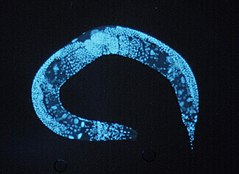If you think about it a bit, it should be obvious that sexual reproduction is a bad idea, in evolutionary terms, i.e., we should never have evolved to reproduce sexually. Consider two species: H. sapiens (i.e., us) and H. amazonius: a hypothetical species entirely of women who can give birth without sex. Now, if we start with say 1000 H. sapiens and 1000 H. amazonius, then as the 1000 H. sapiens only includes 500 women they will only produce half as many babies as the 1000 H. amazonius women.
Therefore the population of the H. amazonius species will increase at twice the rate that the H. sapiens will increase. Poor old H. sapiens will be out-competed by H. amazonius and become extinct. Bad news for us and further bad news for Rupert Murdoch as Sky Sports subscriptions would plummet.
Obviously this has not happened, but it has proved surprisingly hard for scientists to work out why it has not happened. Sexual reproduction is very common among life on Earth, but understanding why is proving very tricky. A recent paper by Morran et al. in Science presents convincing data on this problem. See also an article (behind paywall) in Science that provides background and discusses the paper.
The paper presents work not on H. sapiens but on a very small worm called C. elegans. A picture of one is below. Like us, C. elegans has two sexes. Unlike us these are hemaphrodite and male. This is useful for comparing sexual and asexual reproduction, as C. elegans can do both.

The paper by Morran et al. tests a pre-existing hypothesis: living organisms have evolved to reproduce sexually to help them out-evolve, or at least keep up with, other evolving organisms that infect and prey upon them. In very simple terms: without sex more offspring are produced but these offspring are less genetically diverse (they are just clones) and so a bacteria can evolve to efficiently infect them, and so many of them die due to the infections. With sex there are fewer offspring but they have greater genetic diversity which makes it harder for a bacteria to evolve to efficiently infect them, so more offspring survive. Thus the species that reproduces sexually produces more offspring that live long enough to reproduce – which is what natural selection selects for.
The experiments they do are based on a very simple idea (as many good experiments are). They exploit the fact that C. elegans can choose to reproduce sexually or axseually, and study two populations of C. elegans: one population of C. elegans is kept away from bacteria, while another population is deliberately infected with bacteria.
The hypothesis would then suggest that the population exposed to the bacteria should reproduce mostly sexually while that without the bacteria should reproduce asexually. That is precisely what they find. C. elegans reacts to an evolving infection by having more sex. They even genetically modify a third population of C. elegans so that these worms cannot reproduce sexually: the bacteria wipes out this population.
So, anyway, the next time you have the flu, or an upset stomach etc, remember it may be the case that without infections (and the need to evolve resistance) there would be no sex.
